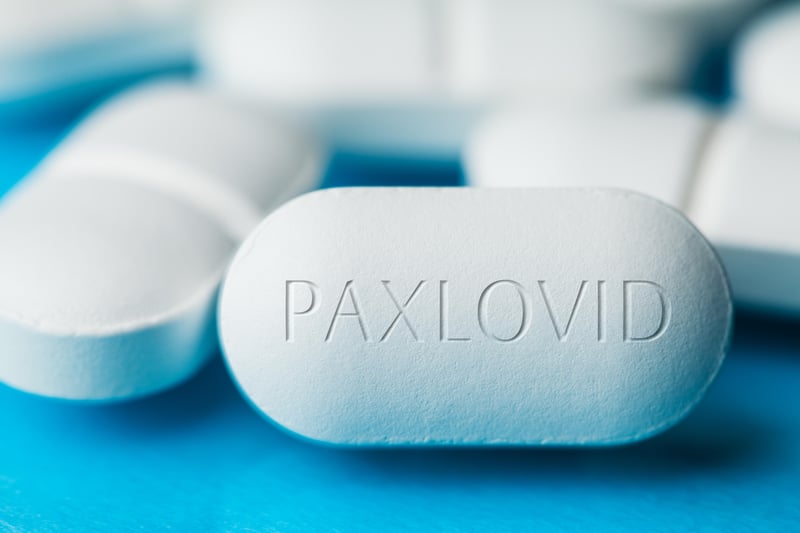Manténgase sano!

- Cara Murez
- Posted December 7, 2022
Paxlovid Soon Won't Be Free for Americans
The antiviral Paxlovid has kept people from getting really sick and dying from COVID-19 since it became available -- at no cost to them.
But by the middle of next year, the U.S. government will stop subsidizing the medication. Instead, it will be billed for like many other medications.
While the Biden administration has paid about $530 for each course of the medication by buying 20 million courses in bulk, the drug is expected to cost much more when it reaches the open market, Kaiser Health News reported.
Pfizer, Paxlovid's maker, has declined to share its pricing plan, but the company has announced that its COVID vaccine will cost $120 per dose when it is no longer provided by the government, about four times as much as it had previously charged.
Pfizer CEO Albert Bourla has told investors that Paxlovid and the company's COVID vaccine will be "a multibillion-dollars franchise."
But that may make the medication less accessible for people who can't afford it, Kaiser Health News said.
"I think the [prescription] numbers will go way down," said Jill Rosenthal, director of public health policy at the Center for American Progress, a public policy research organization.
Other treatments for COVID will be commercialized even sooner, Kaiser Health News reported.
At this point, about 6 million Americans have taken free Paxlovid doses.
The drug remains available through an emergency use authorization from the U.S. Food and Drug Administration, but full approval may take months or years.
That means that people covered by Medicare Part D won't have insurance coverage of the antiviral because federal law requires that Medicare drugs have full approval.
That group may simultaneously be most in need of the medication, as about 90% of those now dying from COVID are 65 and older, Kaiser Health News reported.
Federal health experts said paying out of pocket would be "a substantial barrier" for seniors covered by Medicare, according to the news agency.
"From a public health perspective, and even from a health care capacity and cost perspective, it would just defy reason to not continue to make these drugs readily available," said Dr. Larry Madoff, medical director of Massachusetts' Bureau of Infectious Disease and Laboratory Sciences. Madoff said he hopes the government can set aside unused doses for seniors and people without insurance.
Medicaid, which insures low-income adults and children, will cover Paxlovid treatments in full at least until early 2024.
While the White House has asked Congress to approve an additional $2.5 billion for COVID treatments and vaccines, it's unlikely to get approval.
Even when the drug was free, there were barriers and disparities among those who received it.
Using data from 30 medical centers, the U.S. Centers for Disease Control and Prevention found that white patients were much more likely to receive Paxlovid than those who were Black or Hispanic.
The drug has also been more commonly used by people in Northeastern states because those states offered better access to health care and more programs to get Paxlovid to people, Kaiser Health News reported.
Experts expect those gaps to widen when the drug is no longer subsidized. One example is Massachusetts, where more than 20,000 residents used a state video and phone hotline that is available seven days a week and in 13 languages. That state also has the highest insurance coverage rate in the country, low travel time to pharmacies and the second-highest Paxlovid usage, Kaiser Health News reported.
By comparison, states like Florida and Kentucky used the drug less often and also have lower insurance coverage.
"If you look at access to medications for people who are uninsured, I think that there's no question that will widen those disparities," Rosenthal said.
While most private insurance companies are expected to end up covering COVID therapeutics, it's not clear how long that will take.
"We know from lots of research that when people face cost-sharing for these drugs that they need to take, they will often forgo or cut back," Sabrina Corlette, a research professor at Georgetown University's Center on Health Insurance Reforms told Kaiser Health News.
Regardless, the medications are much cheaper than the cost of caring for ill patients.
"The medications are so worthwhile," Madoff said. "They're not expensive in the grand scheme of health care costs."
More information
The U.S. Centers for Disease Control and Prevention has more on COVID-19.
SOURCE: Kaiser Health News






